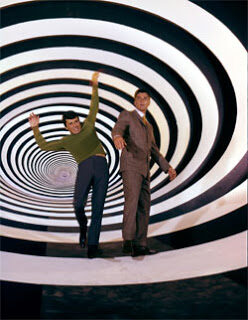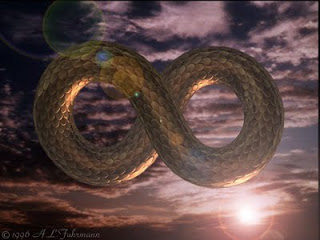It dawned on me that these past memories are merely “mental photographs” and “videos” that no longer exist. They serve a purpose in shaping our current philosophical views but hold no real value beyond that. The present moment is what truly matters—our current identity, our present appreciations, and our immediate desires. They are, in fact, illusory and gone forever. Yes, they serve a function of supporting the philosophical paradigm we currently adopt, but other than that, they are useless. What really matters is what is happening NOW? Who are we NOW? What can I be thankful for NOW? What do I want NOW?, etc. As I meditated on the NOW, it reinforced the importance of steering clear of meditating on what you don’t want. Too often we think and speak about what we don’t want to happen, or what we don’t like, etc, rather than what we want or appreciate. Such thoughts and discussions are not only unproductive but harmful as well. You see, by thinking and talking about what you don’t want, you’re in effect attracting that very thing to you. The vibrations you send out in the form of words and mental thoughts act like a magnet, and sure enough, the Universe arranges to send those experiences your way.
Therefore, today I began the day meditating on what I wanted in my life and what I could be thankful for right now. It is an exercise that we should do every morning because it then sets a positive framework for the rest of the day.
You see, living in the NOW is really all that matters. Our life is in essence just a bunch of NOW moments strung together in this illusory web of time. In the higher spiritual planes, there is no time. Time is conspicuous by its absence. Life in the spiritual realm is eternal, so the concept of past and present do not exist. Living is all about NOW.
Embracing the present moment is an invaluable gift. In Western society, we are often conditioned to focus on schedules and deadlines, which can make life feel like a series of unfulfilling past experiences. Embracing the present allows us to escape this cycle and discover genuine contentment. In the Western world we are brainwashed to think in terms of schedules and deadlines, so our lives sometimes feel like a blur of past unfulfilling experiences. The word “Deadline” seems to solidify the idea that we are racing against the clock to meet out death!
Observe the expressions of people during rush hour; their faces often reveal anxiety and worry. This reflects the pressure of our consumer-driven society, which keeps us on a relentless treadmill. By pausing to appreciate the present, we can transform “nowhere” into “now here,” finding peace in the moment. The “consumer-driven” system we have adopted in the West keeps us running on a “treadmill” getting nowhere. There is another interesting word, “Nowhere”. It can also be written as NOW HERE. Instead of running for a mirage in the future, it is better to stop and appreciate what is NOW HERE.
The last 12 months of my life have probably been as transforming to me as the first year of my life when I became a monk way back in 1983. At that time, as is happening now, I began deconstructing everything I had ever learned up to that point and building a new reality for myself. Shaving my head was a big part of that experience. I remember looking in the mirror and thinking how different I looked now, and that all of the vanity that came with those long locks was now laying on the floor ready to be swept away. I felt so liberated! A new persona had emerged. I was “Born again,” if you will. From that day on I dove deep into the path of bhakti yoga and never once regretted that decision.
Now 26 years later, so much has happened since that fateful day. I surrendered 14 years of my young adulthood to live as a monk, traveled the world, got married, had a daughter, got divorced, left my base in Washington DC, and am now starting all over in New York — rebuilding once again. A close friend in New York has played a crucial role in my transformation, reminding me of today’s themes and encouraging objectivity and open-mindedness. The new ME living in the NOW, although still strongly drawing on my most recent history as a Vaishnava, is a work in progress as I explore other spiritual traditions and honor and respect the perspective and opinions of great thinkers, philosophers, adherents, and even antagonists of these traditions.
The important thing to realize is that we are ultimately not Christian, Hindu, Vaishnava, Muslim, Zorastrian, Jewish, or Bhuddist, all of which are just material designations, but rather, we just are. You and I are unique individuals. There is no need to put a label on who you are. Nor is their a need to define yourself by some church, temple, community, race or religion. You are who you are — a fragment of the splendor of God. We are in fact little Gods having a human experience. The human experience is meant for facilitating self discovery, bringing us to the point where we know absolutely who we are on the highest spiritual planes of existence. Our journey starts by acknowledging that we are eternal spirit souls, transcending our physical form. Once we are set in this divine paradigm, characterized by the absence of time, we then need to focus all our thoughts, gratitude and actions on what is happening NOW, because in absolute reality NOW is all that really matters.
Today marks my birthday according to the Gregorian calendar. Many friends have expressed their love for me and offered blessings, so I am inspired and thankful for their presence in my life right NOW.
I hope the rest of my life is filled with meaningful present moments. When faced with mortality, the only thing we truly possess is the now and our response to it. Living in the moment allows us to embrace eternity. Living in the moment is akin to living eternally.
FAQ
Q: Why is living in the present moment important?
A: Living in the present moment is important because it allows us to fully experience life, appreciate what we have, and make conscious choices. It helps reduce stress and anxiety by shifting focus away from past regrets and future worries.
Q: How can I practice living in the now?
A: Practicing mindfulness techniques, such as meditation and deep breathing, can help you focus on the present. Regularly expressing gratitude and setting daily intentions can also reinforce living in the now.
Q: What are the benefits of focusing on the present?
A: Focusing on the present can lead to increased happiness, reduced stress, and improved mental clarity. It fosters a deeper connection with oneself and others, enhancing overall well-being.
Q: What does living in the now mean?
A: Living in the now means focusing on the present moment, appreciating what you have, and making conscious choices without dwelling on the past or worrying about the future.
Q: How can living in the present reduce stress?
A: By focusing on the present, you shift attention away from past regrets and future anxieties, which reduces stress and promotes a sense of calm and clarity.
Q: What are some techniques to live in the now?
A: Techniques include mindfulness meditation, deep breathing exercises, expressing gratitude, and setting daily intentions to focus on the present moment.
Q: Why is it important to focus on what you want rather than what you don’t want?
A: Focusing on what you want helps attract positive experiences and outcomes, while dwelling on negatives can inadvertently draw them into your life.
Q: How does living in the now improve mental clarity?
A: By concentrating on the present, you reduce mental clutter from past and future concerns, leading to improved focus and decision-making.
Q: Can living in the present enhance relationships?
A: Yes, being present allows for deeper connections with others, as you are more attentive and engaged in interactions, fostering stronger relationships.
Q: What role does gratitude play in living in the now?
A: Gratitude shifts focus to the positive aspects of the present, enhancing appreciation and contentment, which are key components of living in the now.
Q: How does living in the now relate to spirituality?
A: Many spiritual traditions emphasize the importance of the present moment as a path to enlightenment and understanding one’s true nature beyond physical existence.




Leave a Reply
You must be logged in to post a comment.